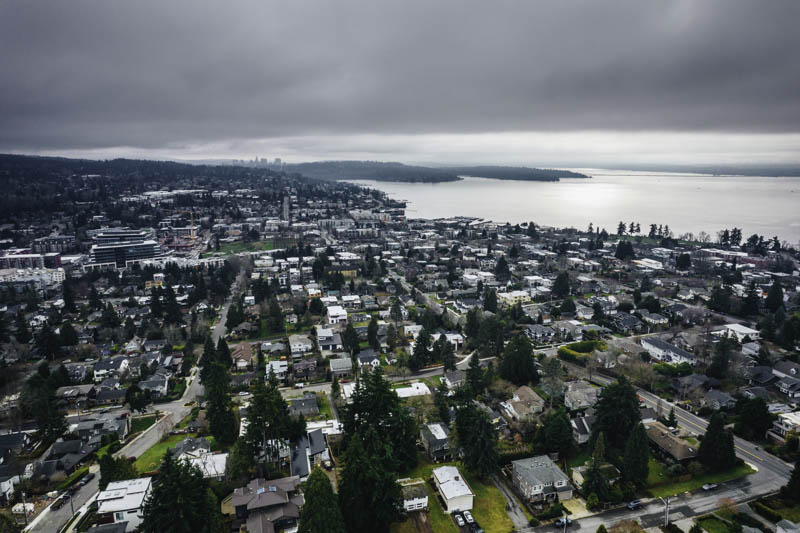Home » Cost Guides » Washington Cost Guides » How Much Does it Cost to Build a House in Kirkland?
Kirkland is located in King County and is known for its waterfront parks, art galleries, boutique shops, public parks, and dining. As a suburb east of Seattle, the city is also one of the fast-growing areas in America and offers professionals expansive employment opportunities. Among the city’s top employers are Evergreen Healthcare, Google, Tableau Software, and Kenworth Truck Co., which entices families and professionals to move into the area. Unfortunately, the cost of living in Kirkland is extremely high compared to the national average.
The Cost of Building a Home in Kirkland
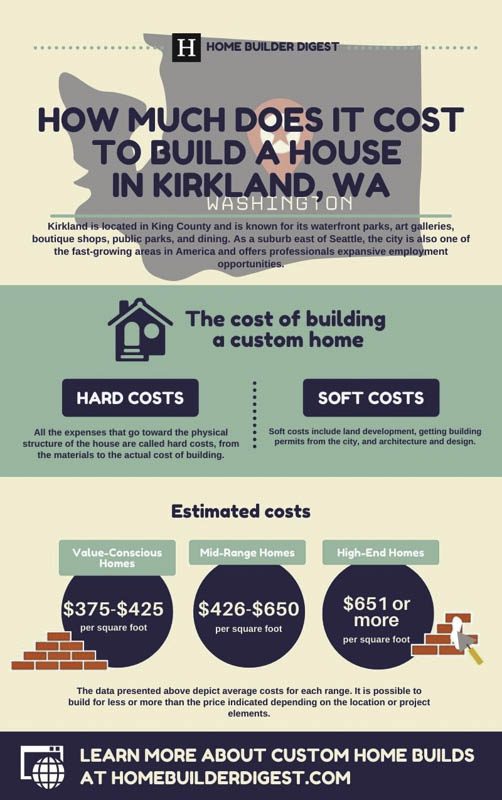
Kirkland’s home prices average at around $424,700, while the national average is $175,700. This puts Kirkland 141.7% higher.
One of the reasons why the cost of living is incredibly high in Kirkland is the low housing inventory that persisted in 2021 and bled into 2022. More than half of the remaining housing supply was priced between $500,000 and $1 million, while less than 6% were sold for no more than $300,000. Most of the houses that were bought through bidding were priced far above the asking price.
Fortunately, the housing market made a big rebound following January 2022. Nearly 8,000 listings were put up in February, which is almost 7% higher than February 2021 and nearly 33% higher than January 2022. The new listings are expected to alleviate the high demand for housing.
While the housing market is slowly recovering, several affordable housing projects have received financial support. These projects will be producing more than 400 units for low-income residents and families.
It should be noted that the high cost of housing is also affecting the cost of new home construction. With some people shifting to having homes constructed, some firms have had to cope with several issues: rising cost of materials, supply chain disruptions, and limited labor. These issues have forced firms to find ways to balance being competitive and profitable; some reports mention firms accepting a limited number of projects to ensure timely completion. Putting a limit on the number of accepted projects has contributed to higher construction costs.
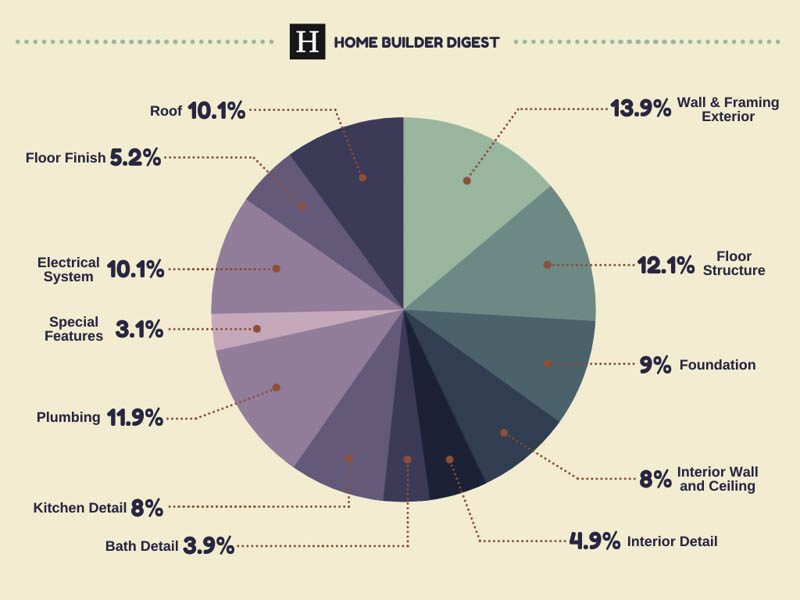
Figure 1. Typical cost breakdown of a single-family home constructed using the conventional method, according to Home Builder Digest.
The national home construction cost average is about $207 per square foot. This is considerably lower than Kirkland’s average cost, which is around $650 per square foot. The typical range of new home construction costs—including hard and soft costs—for the city is $500 to $800 per square foot, according to the experience of a Kirkland-serving firm. This range does not include sales tax. Pricing will of course differ from project to project, depending on details like the amount of detail, customization, and square footage.
Total construction costs are based on hard and soft costs, which will fluctuate independently. Hard costs are related to the aspects of construction that are physically part of the house, including framing, plumbing, flooring, and roofing. Soft costs, meanwhile, are things like land costs, permitting fees, and architectural and design fees.
Hard Costs
According to a Seattle-based firm serving Kirkland, the construction of basic and simple custom homes in the Kirkland area will usually cost around $375 to $425 per square foot. A higher-quality or mid-range custom home will then cost about $426 to $650 per square foot. Plans that have customized features and higher-end finishes for high-end custom homes in Kirkland cost $651 per square foot and above. These figures, however, are estimates for the construction cost and do not include soft costs; firms may charge more or less depending on factors such as square footage and additional features. In the experience of an architecture firm serving Kirkland, most of the homes it is receiving quotes on today are about 15 to 20% higher than the figures from a year ago. Some quotes have reached $600 to $800 per square foot.
On top of construction costs, project owners need to take into account the costs incurred from foundation, roofing, heating, ventilation, and air conditioning (HVAC) and electrical installation.
Washington’s roofing costs generally range between $134.37 to $1,860.45 per 100 square feet, depending on the roofing type. The following table provides price ranges that project owners can expect to see:
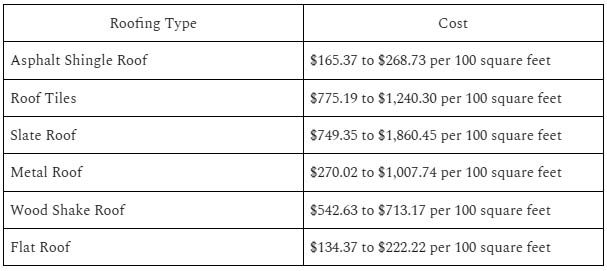
The cost for Major systems is a combination of HVAC, electrical, and plumbing. The following are the average costs for major systems: an HVAC system is about $1,955, while a plumbing system is $414 and electrical installation is $452.
The cost of laying the foundation can reach $20,000 and above in total, while framing will cost about $100 to $200 per square foot.
Soft Costs
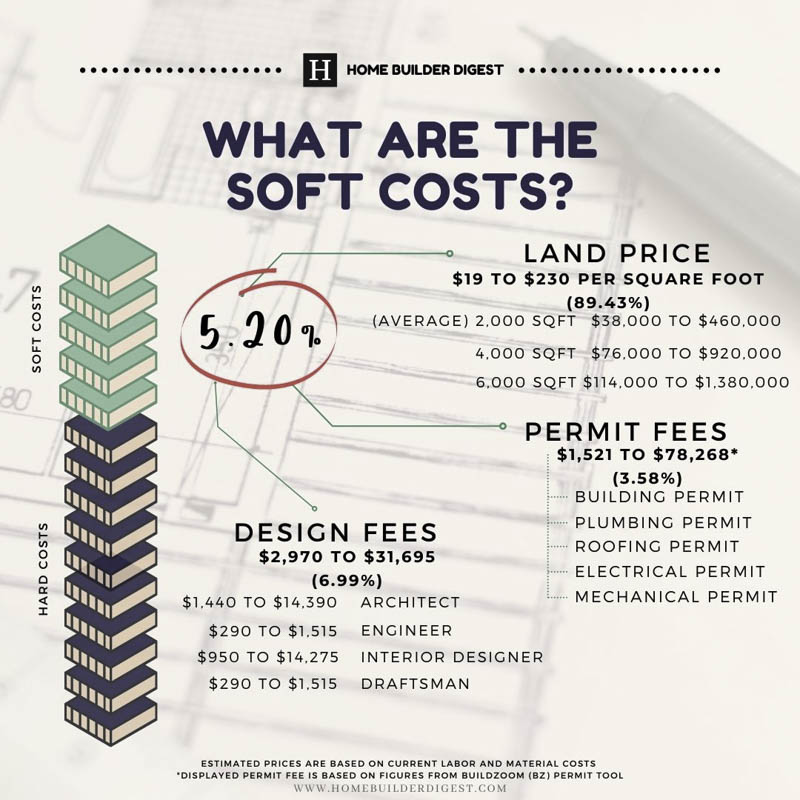
Figure 2. Soft cost percentage and average price range of additional fees, determined from the overall cost of custom home building in Kirkland.
Cost of the Land
Kirkland is currently experiencing positive population growth, with an annual growth rate of 3.13%. Because it has a positive growth rate, it is expected that the cost of land in the city will increase more than those in cities with negative or stagnant population growth.
The plots of land available for residential development in Kirkland on Redfin have an average cost of $1,335,850. The cheapest lot is $470,000 for 8,403 square feet. It is located along 90th Avenue Northeast. Meanwhile, the most expensive lot is $3,000,000. The lot is about 13,025 square feet and can be found along Northeast 60th St.
Permits and Other Fees
Information on the permitting process of Kirkland can be found on the local government’s website, which also displays the permitting schedule for building, plumbing, and electrical permits. Applicants may opt for virtual appointments with the Planning and Building and the Public Works staff as well.
It should be noted that some permit fees are based on project valuation, which must be provided at the time of permit application. The project valuation should be the total fair market value of all construction work for which the permit is issued, including finish work, painting, roofing, electrical, plumbing, HVAC, elevators, fire-extinguishing systems, and any other permanent work or permanent equipment. The Building Official may determine the valuation for new construction when applicable, based on the Building Valuation Data.
Some of the fees for residential construction permits are provided in the table below:
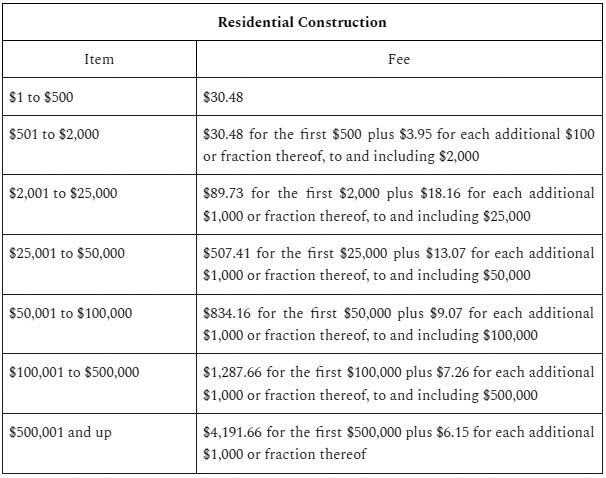
Plan review fees will cost about 65% of the Building Permit Fee. Plumbing Permit Fees for new construction projects are about 8% of the Building Permit Fee and Mechanical Permit Fees will also be 8% of the Building Permit Fee.
Architecture and Design Fees
Architects will typically charge based on the total construction value. For most Kirkland-based architects, this would be up to 20%, depending on the services rendered, project complexity, and architect experience. Some architects may also charge much lower at 5 to 10%.
Project owners may also come across firms charging by the hour or square footage. Pricing is dependent on the request, project location, and the architect’s position, experience, training, and reputation. The most common services are layered drawings, project management, concept development, consultation, and site visits.
How do the custom home building costs in Kirkland compare to other nearby cities?
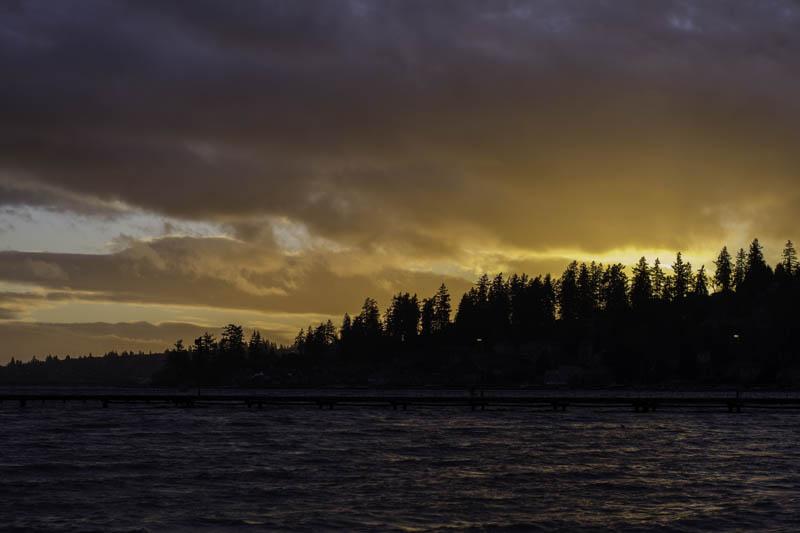
Data from the last five years gathered from the online contractor marketplace BuildZoom (BZ) show that the average cost to build a house in nearby areas tends to be lower than in Kirkland.
Kirkland, WA
Building permits for Kirkland are usually for mechanical projects like the installation of a furnace, heat pump, and air condition system. New construction permits are usually for single family homes although some permits are for mixed-use buildings. Single family residences are usually one to two floors. They do not have much description except the lot number and the subdivision that the house belongs to. Some projects are required to have sprinklers.
Redmond, WA – 9 min (4.1 miles) away from Kirkland
Building permits for Redmond are usually for electrical projects like replacing panels, replacing thermostats, and installing lighting. While most new construction projects are for single residential homes, there are some permits for townhomes and apartments. Most of the single residential homes have one to two floors, a garage, and a patio.
Bellevue, WA – 11 min (6.8 mi) away from Kirkland
Building permits for Bellevue are usually for electrical projects like electrical installation in new homes. New construction projects are usually for new residential homes. Single family homes are usually one to two floors. Most of the homes were built on a lot where an existing single family dwelling (SFD) was demolished.
Sammamish, WA – 22 min (11.8 mi) away from Kirkland
Building permits for Sammamish are mostly for new residential homes. These residential homes do not have a lot of detail in its description except for its status as a single family residence, its lot number, and the subdivision it belongs to.
What Leading Custom Home Builders and Architects that Serve the Kirkland Area Say
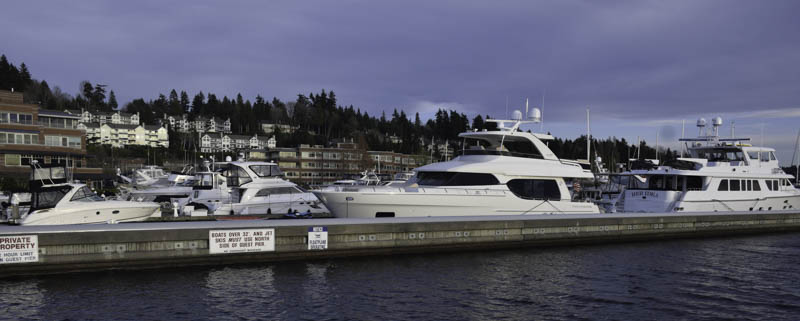
Dave Buck, a principal of CHESMORE/BUCK Architecture, shared that builders in the Kirkland area are very busy with projects while dealing with materials that are in short supply. Most of the projects being taken up are long-term, including light rail systems and large structures for companies like Meta, Microsoft, Oculus, and Google. These long-term projects are expected to soak up the supplies of labor and materials, which will affect the whole industry. This trend may continue for the next few years.
Brian Brand, a senior principal at Baylis Architects, stated that costs have stayed predictable for the past five years with modest inflation—about 2 to 4% increases—even as the pandemic began. Towards the end of the pandemic, costs have begun to rise substantially, which can mostly be attributed to supply chain issues and material costs.
There has been some relief in the recent week with some supply chain issues being resolved. Inflation is causing clients to rethink their plans and ask if costs could possibly come down.
“Of course, our crystal ball is murky at best and we try to be supportive of moving forward on each project. If costs go down during the course of their project, they might be able to save—depending on how their agreement is written,” Brand said. His firm usually tries to recommend a method of charging for costs with a fixed fee and a guaranteed maximum price (GMP). Doing this helps the client by allowing contractors to pass savings on to the owner without reducing their fees when construction costs go down.
The Future of Kirkland’s Residential Construction Industry
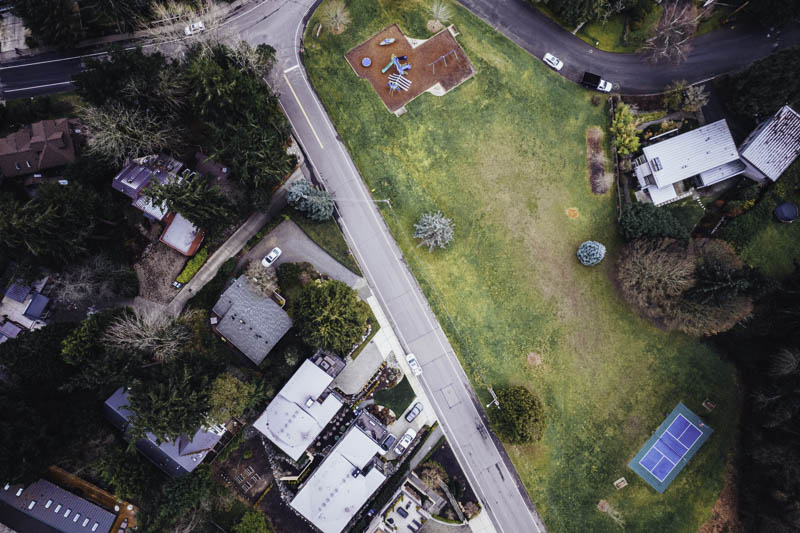
As the construction industry begins to become a more flexible workplace, firms are becoming more aware of the risks that come with digitized work. A new malware threat that could impact construction-related assets and work has recently emerged. It was dubbed “Incontroller” and was said by Construction Dive to be able to “shut down, sabotage a facility, or disable safety controllers at various industrial sites including power plants.”
The Incontroller malware was deemed exceptionally rare and dangerous; various federal authorities are urging firms to take immediate precautionary actions such as increasing their cybersecurity. Controller targets certain devices in different machinery.
Experts encourage firms to continue modernizing their business and project operations to increase their chances against breaches. For example, firms can use connected, cloud-based construction technologies to deploy the latest firewalls and cyber protections while backing up and protecting data.
Considering building a home in Kirkland?
Contact us for a free consultation

